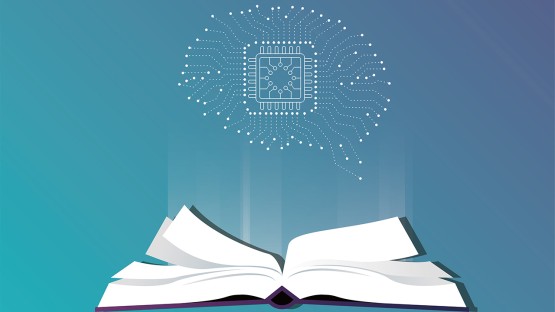In the rapidly evolving landscape of educational technology, a recent study by Cornell researchers sheds light on the divergent perspectives between educators and developers regarding the use of large language models (LLMs) in educational settings. The study highlights a critical gap in understanding the potential harms and benefits of these AI tools, emphasizing the need for collaborative development processes that include educators.
Educators' Concerns: Beyond Technicalities
Educators express significant concerns about the broader societal and pedagogical impacts of integrating LLMs into educational environments. Their apprehensions extend beyond the technical functionalities to encompass issues such as critical thinking, student engagement, and educational inequality. The fear is that reliance on AI tools might undermine students' ability to think independently and critically, skills that are essential in the modern world.
Moreover, there is a growing worry about the exacerbation of educational inequalities. As AI tools become more prevalent, there is a risk that access to these technologies may be unevenly distributed, potentially widening the gap between well-resourced and under-resourced educational institutions.
Developers' Focus: Technical Challenges
On the other hand, developers of LLMs are primarily concerned with technical challenges such as accuracy, bias, and data privacy. While these are undeniably important issues, the study suggests that a narrow focus on technical aspects may overlook the broader educational implications that concern educators.
"Our research indicates a significant disconnect between educators and developers. Bridging this gap is crucial for creating AI tools that are not only technically sound but also pedagogically effective," said Dr. Emily Chen, lead researcher on the study.
Call for Collaborative Development
The study advocates for the inclusion of educators in the development process of educational technologies. By doing so, it is believed that the resulting tools will be better aligned with educational goals and more effective in addressing the concerns of both parties. This collaborative approach could lead to innovations that enhance learning experiences while safeguarding critical educational values.
As educational institutions increasingly integrate AI into their operations, it is imperative to consider the diverse perspectives of those involved. The Cornell study serves as a timely reminder of the importance of cross-disciplinary collaboration in the development of educational technologies, ensuring that they serve the best interests of students and educators alike.
Originally published at https://news.cornell.edu/stories/2025/05/developers-educators-view-ai-harms-differently-research-finds
ResearchWize Editorial Insight
This article highlights a crucial issue for students and researchers: the disconnect between educators and developers regarding AI in education. As AI tools become integral to learning environments, understanding these divergent perspectives is vital.
For students, this study underscores the importance of critical thinking and awareness of potential inequalities in tech access. It raises questions about how AI might influence their educational journey and the skills they develop.
Researchers should note the call for cross-disciplinary collaboration. The study suggests that involving educators in AI development could lead to tools that are both technically robust and pedagogically sound. This approach could set a precedent for future educational technologies.
The article prompts big-picture questions: How can we ensure that AI enhances rather than detracts from educational equity? What systemic changes are needed to bridge the gap between technical development and educational needs? These are essential considerations for anyone involved in the intersection of technology and education.
Looking Ahead: The Future of AI Education
1. Curriculum Revolution or Stagnation? The integration of AI into education demands a curriculum revolution, not just tweaks. Will educational institutions adapt swiftly enough, or will they cling to outdated models? AI literacy must become as fundamental as traditional literacy. Schools need to teach students not only how to use AI tools but also how to question and challenge them. Are we preparing students to be critical thinkers in an AI-driven world, or passive consumers of technology?
2. Regulators: Ahead or Behind the Curve? As AI becomes more embedded in educational settings, regulators must step up. What happens if regulators fall behind? The potential for misuse and unequal access looms large. We need robust policies that ensure AI tools enhance rather than hinder educational equity. This means crafting regulations that are as dynamic and forward-thinking as the technologies they aim to govern.
3. The Ethics of AI in Education The ethical implications of AI in education cannot be overstated. Who decides what content an AI deems appropriate for learning? How do we ensure that AI systems do not perpetuate biases or misinformation? Educational institutions must prioritize ethics training for both educators and students. If we fail to address these ethical challenges head-on, we risk compromising the integrity of education itself.
4. Cross-Disciplinary Collaborations: The New Norm
5. Empowering Educators Educators need to be empowered, not sidelined, in the AI revolution. Professional development programs should focus on equipping teachers with the skills to integrate AI meaningfully into their classrooms. Will we see a shift towards viewing teachers as co-creators of educational technology, rather than mere end-users?
Originally reported by https://news.cornell.edu/stories/2025/05/developers-educators-view-ai-harms-differently-research-finds.
Related Articles
- From Cafés to Campus: Study Hacks with Studocu for STL Students
- What Can College Instructors Offer Their Students in the Age of AI?
- MinerAI: Missouri S&T’s new initiative for AI research, collaboration and resources
📌 Take the Next Step with ResearchWize
Want to supercharge your studying with AI? Install the ResearchWize browser extension today and unlock powerful tools for summaries, citations, and research organization.
Not sure yet? Learn more about how ResearchWize helps students succeed.

